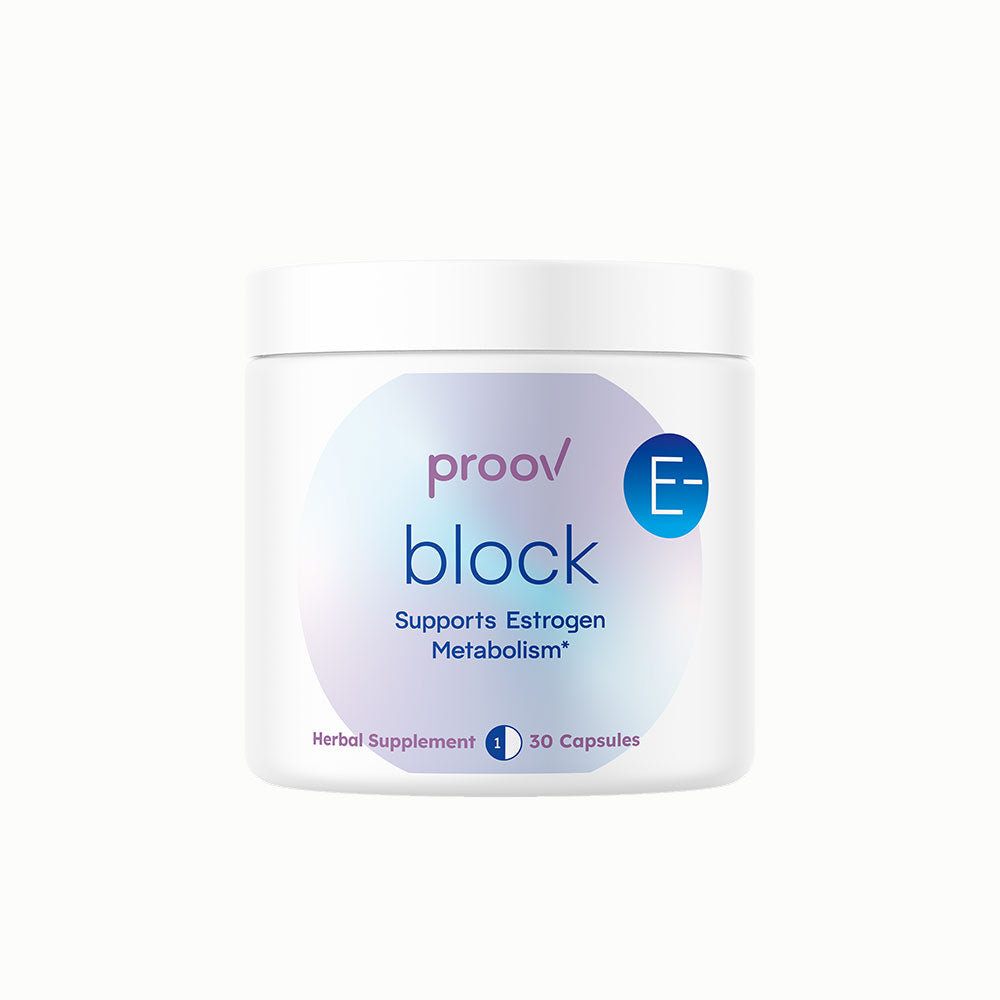Perimenopause is a transitional period lasting anywhere from two to eight years (with four years being the average) that leads up to menopause. Typically affecting women in their late 40s to 50s (though it can happen earlier), it is marked by hormonal imbalances, menstrual cycle changes, and challenging symptoms like hot flashes, night sweats, mood swings, fatigue, and vaginal dryness. While estrogen and progesterone are often blamed for these rollercoaster symptoms, another hormone plays a big role in how we feel during this stage of life: cortisol, our body’s “stress hormone.”
In this article, we explore what cortisol is and why it matters, its link to perimenopause, the symptoms of elevated cortisol during perimenopause, and practical tips for managing your cortisol levels.
What Is Cortisol and Why Does It Matter?
Cortisol is a hormone produced and released into the bloodstream by the adrenal glands (two small, triangle-shaped glands located on top of your kidneys). Known as the ‘stress hormone,’ it is released in response to stress—whether acute (short-term), chronic (long-term), or traumatic (a terrifying event or severe injury).
Cortisol production is controlled by the hypothalamus-pituitary-adrenal (HPA) axis, a complex system that plays an important role in activating the body’s stress response or ‘fight-or-flight response’. Here’s how it works:
- When your brain perceives stress, the hypothalamus signals the pituitary gland.
- The pituitary gland then signals the adrenal glands to release cortisol into the bloodstream.
- Cortisol triggers several changes in your body: it increases your heart rate and breathing to pump more oxygen to your muscles, dilates your pupils to improve vision, gives you a burst of energy for quick action, and slows down digestion so your body can focus on fighting or fleeing from the threat.
After the stressor is gone, the stress hormone levels drop, signaling your body to return to a calm, relaxed state. But, this nickname—stress hormone—gives cortisol a bad rap. In addition to managing the body’s stress response, cortisol also supports a wide range of essential functions throughout the body. It helps to:
- Maintain blood glucose level.
- Regulate blood pressure.
- Regulate metabolism (i.e., how your body uses fat, protein, and carbohydrates).
- Suppress inflammation.
- Regulate the body’s sleep-wake cycle.
Understanding Normal Cortisol Levels
Unlike melatonin (i.e., the sleep hormone), cortisol follows a diurnal rhythm—it peaks in the morning to help you wake up and stay focused, then gradually decreases throughout the day to prepare your body for sleep. . This natural cycle helps regulate your energy levels, motivation, mood, and overall daily functioning. However, stress can disrupt this rhythm at any time, causing cortisol levels to become elevated and leading to uncomfortable symptoms.
Cortisol and Perimenopause: The Link Between Stress and Hormonal Changes
We’ve already described perimenopause as the transitional period leading up to menopause. But you may be wondering: “What is the difference between the two?” During perimenopause, you still have periods, though they become infrequent and unpredictable. Menopause, on the other hand, marks the end of your periods and your ability to get pregnant. It is diagnosed after you’ve gone 12 months without any vaginal bleeding or spotting.
By the time you reach perimenopause, the number of viable eggs in your ovaries decreases significantly due to aging, leading to hormonal changes like declining and fluctuating levels of estrogen and progesterone. These changes are accompanied by symptoms including hot flashes, night sweats, acne, mood swings, fatigue, and insomnia. These perimenopausal symptoms can be overwhelming, making it difficult to embrace the transition or enjoy other aspects of your life, such as work, family, or hobbies. And so, the combined impact of these symptoms is increased stress.
As your stress levels rise, your body produces more cortisol, which is known to lower estrogen levels and worsen menopausal symptoms. For example, consider struggling with fatigue and brain fog during perimenopause. You wake up feeling drained and find it hard to concentrate at work. As the day progresses, your frustration builds, leading your body to release more cortisol in response to stress. This excess cortisol can further cloud your thinking and sap your energy. It creates a vicious cycle that makes it difficult to feel balanced and in control throughout your day—the more stressed you are, the worse your symptoms become, and vice versa.
In summary, fluctuating levels of estrogen and progesterone during perimenopause lead to various symptoms, which, in turn, increase stress levels. This heightened stress exacerbates those very symptoms, creating a feedback loop.
Interestingly, one study suggests that it’s not just the stressors themselves that worsen menopausal symptoms but how we perceive and respond to them. Your stress response to perimenopausal symptoms may be heightened by other life changes, including work pressures, family responsibilities, financial strains, children leaving home, or caring for older family members. Additionally, your ability to manage stress might not be what it used to be. Another study explains that this reduced resilience may be due to the “accumulation of wear and tear caused by daily experiences and major life stressors.” It’s okay to feel more stressed at this stage, even though it can be frustrating. Keep reading, and we’ll explain how you can lower your cortisol levels.
Symptoms of Elevated Cortisol During Perimenopause
When your cortisol levels are consistently high, you may experience symptoms like:
- Fatigue.
- Increased appetite and cravings for sugary, fatty, and salty foods.
- Weight gain, particularly around your abdomen - this kind of weight gain is also known as “cortisol belly”.
- Insomnia.
- Brain fog.
- Digestive problems like acid reflux, bloating, and stomach pain.
- High anxiety and low moods.
- Low sex drive.
How Cortisol Impacts Sleep in Perimenopause
Sleep problems are common during perimenopause, but did you know high cortisol levels could also be a major culprit behind your sleepless nights? Ideally, cortisol should decrease at night to signal that it’s time for rest. But with high stress levels throughout the day, your body may continue to release more cortisol in the evening, keeping you alert when you should be winding down. Even a brief period of stress right before bed can have the same effect. Elevated cortisol levels at night can make it harder to fall asleep or stay asleep, leading to insomnia or restless sleep. This creates a cycle where poor sleep increases your sensitivity to stress, which can then raise cortisol levels even higher.
You can support your body’s natural rhythm by creating a calming bedtime routine, reducing screen time before bed, and practicing stress management techniques that promote lower cortisol levels.
Managing Cortisol Levels in Perimenopause: Practical Tips for Lowering Stress
Keeping your stress levels down during perimenopause is key to regulating your cortisol levels naturally and also easing the accompanying symptoms like fatigue, insomnia, and weight gain. The good news is that it’s not hard, expensive or even time-consuming! You can keep the stress hormone in check with simple and healthy lifestyle choices, including diet, exercise, and relaxation techniques. Here’s how:
Diet and Cortisol: Foods That Support Hormonal Balance
When trying to lower cortisol levels, it’s important to not get hung up on “stress-reducing foods”, because you can easily get bored of eating the same thing and possibly develop an unhealthy relationship with food that’ll exacerbate your stress. What really matters is the nutrients they provide, since they can be found in various foods — this opens up a lot more options for you. In other words, here are stress-reducing and hormone-balancing nutrients you should add to your diet:
- Vitamin C: Citrus fruits, bell peppers, strawberries, papaya, broccoli, and potatoes, etc.
- Magnesium: Dark chocolate, bananas, avocados, leafy greens like spinach, quinoa, black beans, and more.
- Probiotics: Fermented foods like kefir, kimchi, sauerkraut, kombucha, tempeh, and greek yogurt.
- Omega-3 fatty acids: Chia seeds, flax seeds, walnuts, caviar, and fatty fish like salmon, mackerel, anchovies, and sardines.
- L-theanine: Green, black, white, pu’er, yellow, and oolong teas.
- L-tryptophan: Red meat, poultry, egg, cheese, beans, nuts, and seeds.
It is important to limit your consumption of—or completely avoid—sugar-laden (think: foods with added sugars) and processed foods as well as caffeine and alcohol because they can raise your cortisol levels.
Exercise and Stress Management
Exercise is a physical stressor, so your cortisol levels surge temporarily when you work out. But the cool thing about the cortisol produced through regular physical activity is that it helps to train your body to produce less cortisol in response to everyday stress, making you more resilient.
Exercise also boosts endorphin production—your body’s natural “feel-good” chemicals that promote the feelings of calm and relaxation, lower stress, relieve pain, and even improve your sense of wellbeing. However, the type and intensity of exercises you do matter, especially because during perimenopause, your body may not handle high-intensity workouts as well. That’s why we recommend sticking to moderate activities like walking, yoga, swimming, dancing, or even gardening. These can help balance cortisol without adding much strain to your body, and you’ll also benefit from better weight management, improved body image, increased confidence, and greater sleep quality.
Relaxation Techniques to Reduce Stress
Mindfulness practices such as meditation, journalling, deep breathing, and yoga can help you stay grounded (read: be present in the moment), clear your mind, and lower your cortisol levels. Setting aside time for self-care during your perimenopause journey, whether through relaxation or hobbies, can significantly reduce your stress load, allowing your body to maintain a healthier cortisol balance.
Cortisol Testing and Hormonal Support During Perimenopause
If you're experiencing persistent or severe symptoms and you suspect that elevated cortisol is making your perimenopause journey difficult, testing can help. Proov Empower offers accurate at-home (just pee) tests that will help confirm that you are perimenopausal and a free companion app that delivers actionable insights on your symptoms and how you can manage them better.
Hormonal Support for Perimenopausal Women
Managing cortisol and other hormonal imbalances during perimenopause may require more than just lifestyle changes. Hormone replacement therapy (HRT) is one of the most effective targeted solutions, as it helps replace the estrogen and progesterone that your body no longer produces in sufficient amounts. By doing this, it can alleviate perimenopausal symptoms, lower cortisol levels, and support overall health.
Your healthcare provider can walk you through the benefits and risks of HRT, help determine if it is the right option for you, and develop a personalized treatment plan based on your medical history and unique needs. Alternatively, you can opt for natural supplements like Proov’s Boost Herbal Supplement, which supports estrogen production, and the Balance Bundle, which not only promotes healthy progesterone production but also supports stress hormone levels. It’s still important to consult your healthcare provider to ensure that your preferred natural supplements are suitable for your unique journey. Working closely with a healthcare provider to create a personalized hormone management plan can make all the difference in navigating your perimenopausal phase with confidence and ease.
If you’d like, we can match you with an expert provider for tailored advice, prescription medication support, and all the necessary medical support you may need.
Conclusion
The connection between cortisol, stress levels, and perimenopause symptoms is clear. The hormonal changes during perimenopause bring on symptoms that can heighten stress, causing cortisol levels to rise and leading to more intense symptoms. Proactively managing stress through lifestyle changes—such as a balanced diet, regular exercise, and mindfulness practices—can help regulate cortisol levels and improve overall well-being.
If you want additional support, consider starting with hormone testing to better understand what’s happening in YOUR body. Proov Empower is designed to be your trusted partner, offering accurate at-home testing—results in only 10 minutes, actionable insights, and quality support for your unique journey.
.
.
Sources
- https://www.sleepfoundation.org/nutrition/what-is-tryptophan
- https://www.sciencedirect.com/science/article/pii/S0306453021002109
- https://www.runnersworld.com/uk/health/mental-health/a60125903/cortisol-and-exercise/
- https://health.clevelandclinic.org/how-to-reduce-cortisol-and-turn-down-the-dial-on-stress
- https://www.ncbi.nlm.nih.gov/pmc/articles/PMC3428505/
- https://www.ncbi.nlm.nih.gov/pmc/articles/PMC7840006/
- https://www.positivepause.co.uk/menopause-blog/cortisol-and-menopause
- https://www.sciencedirect.com/science/article/abs/pii/S0306453015300408












